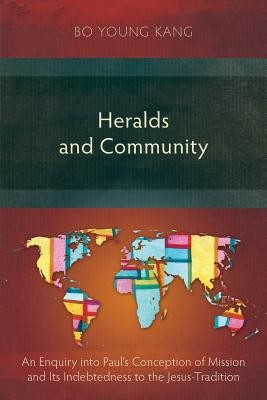
- We will send in 10–14 business days.
- Author: Bo Young Kang
- Publisher: Langham Monographs
- ISBN-10: 1783689013
- ISBN-13: 9781783689019
- Format: 15.2 x 22.9 x 2.2 cm, minkšti viršeliai
- Language: English
- SAVE -10% with code: EXTRA
Reviews
Description
This book is part of the ongoing debate about Paul's understanding of the relationship between his own mission and the church's. While this study endorses some previous scholarship on Paul's silence about the church's proactive evangelism in his letters, it argues that explanations for such silence cannot be adequately made from exegetical conclusions on related texts alone. Rather, this study suggests that constructing a plausible conception of mission as understood by Paul, influenced by the impact of the Jesus-tradition and Jewish restoration eschatology, is essential for explaining Paul's thinking. Dr Kang proposes that Paul's silence regarding congregational evangelism is due to his unique two-pronged conception of mission - one being the event of eschatological heralds, the other being the event of eschatological community.
EXTRA 10 % discount with code: EXTRA
The promotion ends in 22d.04:22:57
The discount code is valid when purchasing from 10 €. Discounts do not stack.
- Author: Bo Young Kang
- Publisher: Langham Monographs
- ISBN-10: 1783689013
- ISBN-13: 9781783689019
- Format: 15.2 x 22.9 x 2.2 cm, minkšti viršeliai
- Language: English English
This book is part of the ongoing debate about Paul's understanding of the relationship between his own mission and the church's. While this study endorses some previous scholarship on Paul's silence about the church's proactive evangelism in his letters, it argues that explanations for such silence cannot be adequately made from exegetical conclusions on related texts alone. Rather, this study suggests that constructing a plausible conception of mission as understood by Paul, influenced by the impact of the Jesus-tradition and Jewish restoration eschatology, is essential for explaining Paul's thinking. Dr Kang proposes that Paul's silence regarding congregational evangelism is due to his unique two-pronged conception of mission - one being the event of eschatological heralds, the other being the event of eschatological community.


Reviews